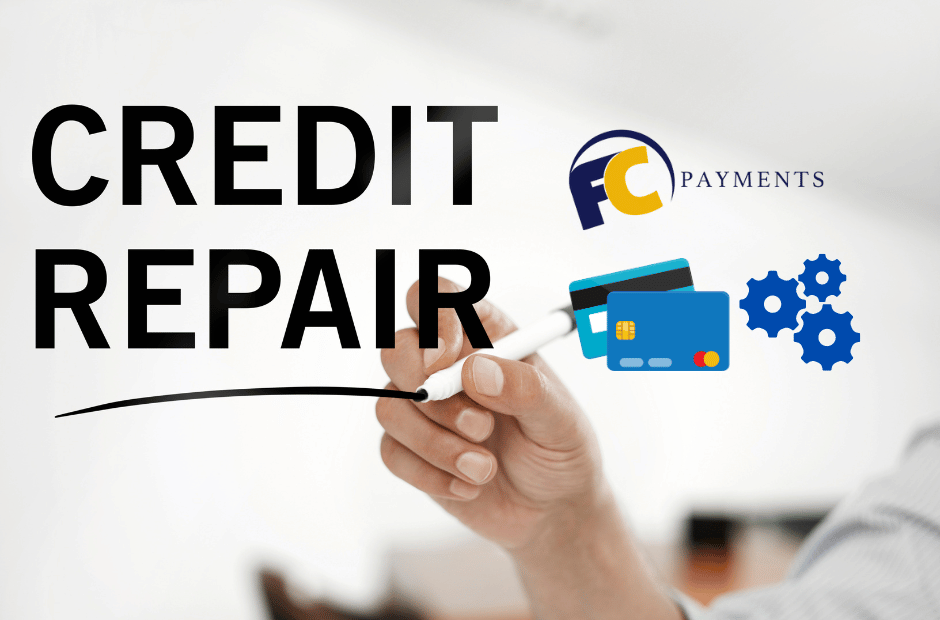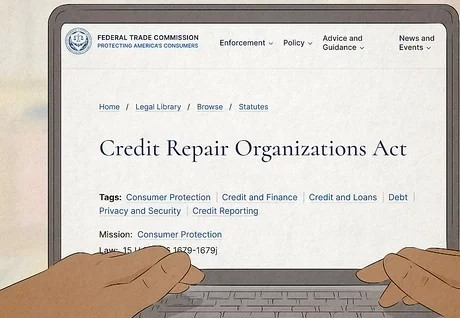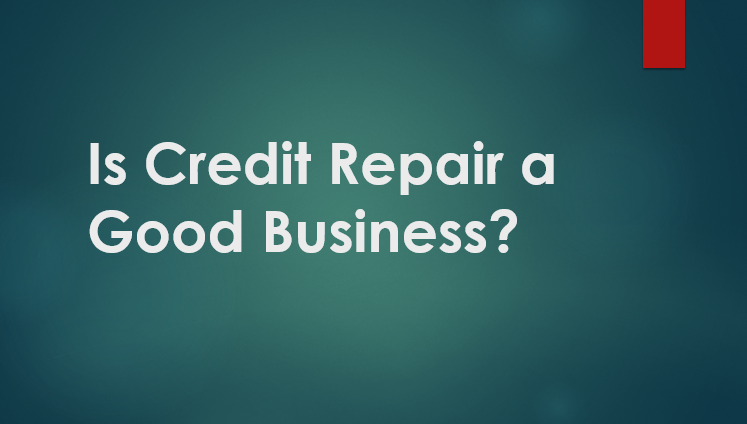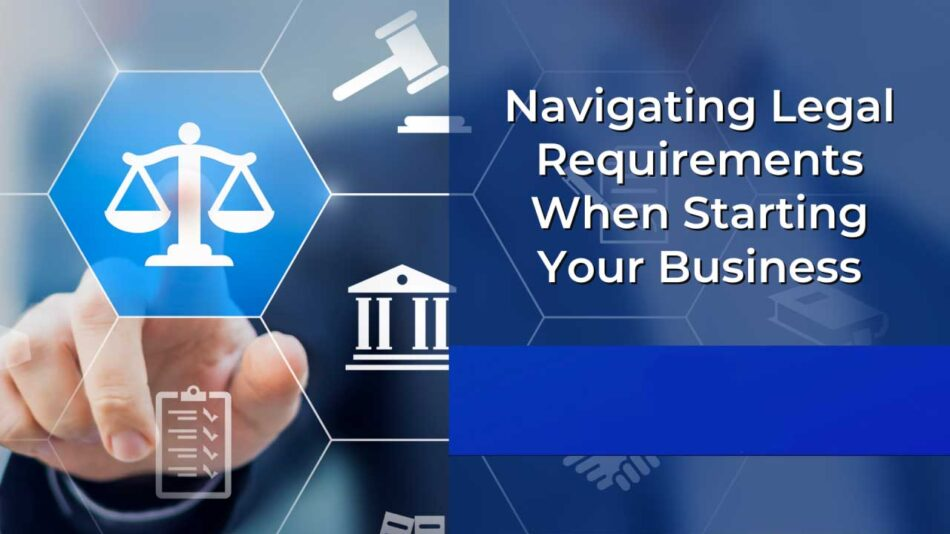In today’s financial landscape, the significance of a healthy credit score is more pronounced than ever. As a result, the demand for credit repair services has skyrocketed, presenting an unparalleled credit repair business opportunity for entrepreneurs looking to make a meaningful impact. This industry, vital for individuals seeking to improve their financial standing, offers a promising pathway for businesses dedicated to helping others rectify their credit issues.

For those with an entrepreneurial spirit and a passion for financial empowerment, the credit repair sector opens the door to a fulfilling and potentially lucrative venture. With an increasing number of consumers recognizing the value of good credit, the market for credit repair services is expanding, providing a ripe environment for new entrants. This growth is not just a testament to the sector’s viability but also to the significant role these services play in the broader financial health ecosystem.
By stepping into the credit repair industry, entrepreneurs embark on a journey that not only fosters business growth but also contributes positively to individual financial recoveries.
Understanding the Credit Repair Industry
The credit repair industry operates at the intersection of financial consultancy and consumer advocacy, offering services designed to help individuals correct errors and inaccuracies on their credit reports. At its core, the value of credit repair services lies in their ability to enhance financial health by enabling consumers to access better loan terms, lower interest rates, and increased borrowing opportunities. This industry plays a critical role in the financial ecosystem, providing a pathway for individuals to recover from past financial missteps and rebuild their credit profiles.
The process of credit repair involves a meticulous analysis of a client’s credit reports, identification of disputable items, and the submission of dispute letters to credit bureaus or creditors. It’s a task that requires a deep understanding of credit laws, including the Fair Credit Reporting Act (FCRA) and the Credit Repair Organizations Act (CROA), ensuring that consumers’ rights are protected throughout the process. By removing inaccuracies and rectifying errors, credit repair services can significantly impact an individual’s financial stability and future opportunities.
Moreover, the industry is not just about rectifying past mistakes; it’s also about educating consumers on maintaining their financial health and preventing future credit issues. This dual focus on correction and education underscores the industry’s importance, positioning credit repair businesses as invaluable allies to consumers aiming to navigate the complex world of credit.
The Legal Landscape: Navigating the Credit Repair Organizations Act
The Credit Repair Organizations Act (CROA) is a pivotal piece of legislation that governs the operation of credit repair businesses in the United States. Established to protect consumers from misleading or fraudulent practices, the CROA sets strict guidelines that credit repair organizations must follow. Key provisions include the prohibition of upfront payment before services are rendered, the requirement to provide consumers with a written contract detailing the services to be provided, and the right of consumers to cancel the contract within three days without any charge.

Additionally, the Act mandates that these businesses cannot make false or misleading statements about their services. Understanding and adhering to the CROA is not only a legal requirement but also a cornerstone of ethical practice, ensuring that businesses operate transparently and in the best interest of their clients. For entrepreneurs entering the credit repair industry, navigating the legal landscape laid out by the CROA is crucial for establishing a compliant, trustworthy, and successful operation.
Is Credit Repair a Good Business?
In evaluating whether credit repair is a good business, one must consider the increasing market demand and the inherent profitability of the sector. The growing awareness among consumers about the impact of credit scores on their financial well-being has led to a surge in demand for credit repair services. This heightened need translates into a robust business opportunity for those looking to enter the field. Credit repair businesses can benefit from recurring revenue models, such as monthly subscriptions or payment for services rendered, which can lead to stable and predictable income streams.

Additionally, the scalability of credit repair services allows for growth without a proportional increase in overhead costs, enhancing profitability. The key to success lies in offering exceptional service, maintaining compliance with legal standards, and effectively marketing the business to reach potential clients. Given these factors, credit repair can indeed be a good business, offering financial rewards while making a positive impact on individuals’ lives.
Success Stories: Thriving Credit Repair Businesses
The landscape of credit repair is dotted with success stories that not only inspire but also shed light on what makes these businesses stand out. Thriving credit repair businesses often share common traits such as a strong commitment to customer service, innovative use of technology, and a deep understanding of credit laws and financial strategies. For instance, companies that leverage credit repair software to streamline operations and improve accuracy in dispute processes can handle a larger volume of clients efficiently, enhancing their profitability.
Successful businesses also invest in consumer education, offering workshops, resources, and tools that help clients maintain their financial health post-repair. This holistic approach builds trust and loyalty among clients, leading to referrals and positive reviews that further drive business growth. These success stories underscore the potential of the credit repair business to be not just profitable but also transformative for both the business owners and their clients.
Starting Your Own Credit Repair Business
Embarking on the journey to start your own credit repair business can be both exciting and daunting. To ensure a smooth launch, follow this step-by-step guide. First, acquaint yourself with the legal requirements, notably the Credit Repair Organizations Act (CROA), to understand the federal regulations governing the industry.
Next, create a solid business plan that outlines your services, pricing structure, and marketing strategies. Securing the necessary licensing as per your state’s laws is crucial, as is choosing the right credit repair software to streamline your operations. Invest time in building a professional website and establishing an online presence to attract clients.
Lastly, focus on education—both for yourself and your clients. Understand credit laws inside out and prepare to educate your clients about credit management and financial health. Starting a credit repair business without money requires dedication and a keen understanding of both the financial and legal landscapes, but with the right approach, it can be a highly rewarding venture.
Licensing and Legal Requirements
Navigating the licensing and legal requirements is a crucial step in starting a credit repair business. Beyond the federal Credit Repair Organizations Act (CROA) which outlines the ethical and operational standards for the industry, many states have their own set of laws and licensing requirements for credit repair businesses. This may include registering your business, obtaining a surety bond to protect clients against potential fraud, and adhering to specific state regulations regarding credit repair services.

It’s imperative to conduct thorough research or consult with a legal advisor to ensure you fully comply with both federal and state laws. Non-compliance can lead to hefty fines or legal action, so prioritizing this aspect of your business setup is essential for long-term success.
Choosing the Right Credit Repair Software for Small Business
For small businesses in the credit repair industry, selecting the right credit repair software is crucial for efficiency and scalability. The top solutions in the market typically offer features like credit report analysis, dispute letter generation, and progress tracking for clients. When comparing options, consider the software’s ease of use, customization capabilities, and integration with other tools or services you plan to use. Security is another critical factor, as handling sensitive client information requires robust data protection measures.
Popular choices among small businesses include Credit Repair Cloud, which is praised for its comprehensive features and user-friendly interface, and DisputeBee, known for its simplicity and effectiveness in generating dispute letters. Ultimately, the right software will streamline your operations, save time, and allow you to focus more on client service and business growth.
Crafting a Business Model for Your Credit Repair Business
When establishing your credit repair business, it’s crucial to develop a business model that aligns with your market, goals, and client needs. One popular model is the subscription-based approach, where clients pay a monthly fee for ongoing services, ensuring a steady revenue stream and facilitating long-term client relationships.
Another model is the pay-per-deletion system, charging clients only for successfully removed inaccuracies or negative items from their credit reports. This can be appealing to clients as it directly ties payment to results. Hybrid models also exist, combining elements of both subscription and pay-per-deletion, offering initial setup or audit fees followed by performance-based charges.
Additionally, consider incorporating credit education and counseling into your services, addressing a wider range of client needs and differentiating your business in the competitive credit repair industry. The choice of business model impacts marketing strategies, customer satisfaction, and ultimately, the financial success of your venture. It’s about finding the right balance between value for your clients and sustainable profitability for your business.
Pricing Structure and Revenue Streams
Setting up a clear and fair pricing structure is key to the success of your credit repair business. Many businesses opt for a tiered pricing model, offering different levels of service at varying price points. This can range from basic credit report analysis and dispute management to more comprehensive services including credit monitoring, identity theft protection, and legal support. Additionally, consider offering free training sessions or initial consultations as a way to attract potential clients and demonstrate value.
Revenue streams for a credit repair business are not limited to direct service fees. Consider offering complementary services, such as financial coaching, debt management advice, or access to credit products. Affiliate partnerships with mortgage brokers, auto dealers, and real estate agents can also provide additional revenue opportunities, as these professionals often encounter clients in need of credit repair services. By diversifying your revenue streams, you not only increase your business’s earning potential but also enhance its ability to withstand market fluctuations, ensuring financial stability and growth.
Creating a Professional Website for Your Credit Repair Business
A professional website serves as the cornerstone of your credit repair business’s online presence, crucial for attracting and retaining clients. It’s often the first point of contact for potential clients, making a strong first impression essential. A well-designed website should be user-friendly, easy to navigate, and mobile-responsive, ensuring accessibility for all users. Include clear, concise information about your services, pricing, and the benefits of choosing your business for credit repair needs. Testimonials and success stories can significantly enhance trust and credibility.

Furthermore, integrating an FAQ section, a blog with helpful articles, and a contact form for easy inquiries can improve engagement. Security features are also paramount to protect client information. By investing in a professional website, you not only establish your business’s legitimacy but also create a valuable resource for clients seeking to improve their financial health.
The Credit Repair Process: A Step-by-Step Guide
Navigating the credit repair process can seem daunting, but understanding each step can demystify the journey towards better credit. It begins with obtaining and reviewing your credit reports from the three major credit bureaus. This review helps identify any inaccuracies, outdated information, or unverifiable items that may be impacting your credit scores negatively.

Next, you’ll draft and send dispute letters to the credit bureaus or directly to the creditors, challenging any errors found. The bureaus then investigate the disputes, a process typically taking up to 30 days.
Successful disputes will result in the removal or correction of the inaccuracies, potentially leading to an improvement in your credit score. It’s also important to address legitimate negative marks by negotiating with creditors, possibly through a pay-for-delete agreement or setting up a payment plan.
Throughout this process, maintaining good financial habits and avoiding new credit problems are crucial for lasting credit health. This step-by-step guide offers a clear pathway to repairing credit, empowering individuals to regain control of their financial future.
Analyzing Credit Reports and Identifying Disputable Items
The first critical step in the credit repair process is analyzing credit reports thoroughly. This involves reviewing the reports obtained from the three major credit bureaus for discrepancies, inaccuracies, or outdated information. Look for common errors like incorrect personal information, accounts that don’t belong to you, wrongly reported late payments, or outdated balance information.
Understanding the details listed in your credit report is crucial for identifying items that can legally be disputed. Highlighting disputable items requires a keen eye for detail and an understanding of what constitutes a valid dispute under the Fair Credit Reporting Act (FCRA). It’s also beneficial to prioritize disputes based on their potential impact on your credit score, focusing first on those that might significantly affect your financial health.
Effective analysis and identification of disputable items are foundational steps towards successful credit repair, setting the stage for clear communication with credit bureaus and creditors to rectify errors and improve credit scores.
Understanding Federal and State Regulations
Navigating the maze of federal and state regulations is crucial for credit repair businesses to operate legally and ethically. At the federal level, the Credit Repair Organizations Act (CROA) provides the foundation, setting strict guidelines to prevent deceptive practices and protect consumer rights. Businesses must provide written contracts, allow a three-day cancellation period, and avoid charging upfront fees for services not yet rendered.
Additionally, the Fair Credit Reporting Act (FCRA) outlines consumers’ rights regarding their credit information, including the right to dispute inaccuracies. State laws can introduce further complexities, with some states requiring registration or licensing for credit repair organizations, and others imposing additional consumer protection measures.
Staying informed about these regulations and ensuring full compliance is not just a legal obligation but a commitment to upholding the highest standards of service and integrity in the credit repair industry. By thoroughly understanding and adhering to both federal and state laws, credit repair businesses can build trust with clients and navigate the industry with confidence.
Consumer Protection Laws and Your Business
Consumer protection laws significantly impact how credit repair businesses operate, emphasizing transparency, fairness, and respect for consumer rights. The Credit Repair Organizations Act (CROA) and the Fair Credit Reporting Act (FCRA) are central to ensuring that credit repair services are conducted ethically. These laws require clear communication about services offered, prohibit misleading claims, and protect consumers from deceptive practices.
By aligning business practices with these regulations, credit repair companies not only avoid legal pitfalls but also build trust with clients. Understanding and adhering to consumer protection laws is not just about compliance; it’s about committing to the highest standards of integrity and customer service, ensuring that clients feel secure and supported throughout their credit repair journey.
Navigating Legal Requirements: A Guide for Credit Repair Business Owners
As a credit repair business owner, understanding and navigating the maze of legal requirements is crucial for running a compliant and ethical operation. These requirements are not just bureaucratic hurdles but are designed to protect both your business and the consumers you serve.

The Foundation of Compliance: Understanding Key Legislation
The Consumer Credit Protection Act and the Credit Repair Organizations Act (CROA) are foundational pieces of legislation that any credit repair business must adhere to. The Consumer Credit Protection Act encompasses various statutes, including the Truth in Lending Act, which aims to ensure fair and informed use of credit.
Meanwhile, the CROA specifically regulates credit repair businesses, emphasizing transparent practices and consumer rights, such as the prohibition of upfront fees and the requirement for written contracts.
Ensuring Trust with a Credit Repair Surety Bond
One specific legal requirement for many credit repair businesses is obtaining a credit repair surety bond. This bond is a form of financial protection for your clients, offering them recourse if they should suffer any harm due to your business’s actions. It’s not only a legal requirement in several states but also a mark of credibility, showing prospective clients and partners that you operate a trustworthy and financially responsible business.
Leveraging Technology for Growth and Efficiency
In today’s digital age, integrating technology into your business operations can significantly enhance efficiency and client satisfaction.
Credit Repair Cloud: Streamlining Operations
Credit Repair Cloud is a software solution that has revolutionized the way credit repair businesses manage their workflows. From automating the dispute letter process to tracking client progress, this platform offers a suite of tools that can help you serve your clients more effectively and grow your business. By leveraging such technologies, you’re not just streamlining operations; you’re also ensuring a more consistent and reliable service that can attract new clients.

Building a Profitable Business through Diverse Services
Expanding your service offerings is a strategic way to grow your credit repair business into a profitable business. This involves looking beyond traditional credit repair to encompass a broader range of financial wellness services.
Credit Counseling and Education: Enhancing Value
Offering credit counseling services is a natural extension for credit repair businesses. By providing personalized advice and financial education, you can help clients not only repair their credit but also manage it wisely in the future. This holistic approach not only adds value for your clients but also positions your business as a comprehensive resource for financial wellness.
Compliance with Credit Services Organization Regulations
As you diversify your services, it’s important to stay informed about the credit services organization regulations in your state. These laws can vary significantly, and they may impose additional requirements on businesses that offer credit counseling or other financial advisory services. Keeping abreast of state and federal laws ensures that your expanded offerings remain compliant and beneficial to your clients.
A Path to Success
For credit repair business owners, navigating the complexities of legal compliance, leveraging technology like Credit Repair Cloud, and expanding service offerings are key strategies for building a successful and profitable business.

By prioritizing transparency, ethical practices, and client education, you can establish a reputable business that not only helps people improve their credit scores but also empowers them to achieve their financial goals. In the evolving landscape of credit repair and financial services, staying informed, adaptable, and committed to excellence will be your greatest assets.
Conclusion
The credit repair business opportunity is both vast and rewarding, offering entrepreneurs a chance to make a significant impact on individuals’ financial health while building a profitable enterprise. By understanding the legal landscape, prioritizing client relationships, and continuously seeking ways to improve and expand your services, you can establish a successful credit repair business.
Remember, success in this industry is not just about removing negative items from credit reports; it’s about empowering clients with the knowledge and tools they need to achieve and maintain financial freedom. As you embark on or continue your journey in the credit repair industry, keep these principles at the heart of your business strategy, and you’ll be well on your way to making a lasting difference in the lives of many.
